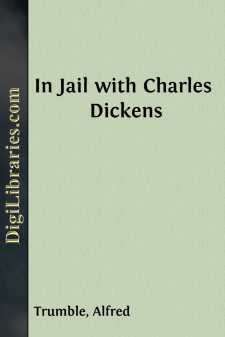Categories
- Antiques & Collectibles 13
- Architecture 36
- Art 48
- Bibles 22
- Biography & Autobiography 816
- Body, Mind & Spirit 145
- Business & Economics 28
- Children's Books 18
- Children's Fiction 14
- Computers 4
- Cooking 94
- Crafts & Hobbies 4
- Drama 346
- Education 58
- Family & Relationships 59
- Fiction 11831
- Foreign Language Study 3
- Games 19
- Gardening 17
- Health & Fitness 34
- History 1378
- House & Home 1
- Humor 147
- Juvenile Fiction 1873
- Juvenile Nonfiction 202
- Language Arts & Disciplines 89
- Law 16
- Literary Collections 686
- Literary Criticism 179
- Mathematics 13
- Medical 41
- Music 40
- Nature 179
- Non-Classifiable 1768
- Performing Arts 7
- Periodicals 1453
- Philosophy 66
- Photography 2
- Poetry 897
- Political Science 203
- Psychology 45
- Reference 154
- Religion 516
- Science 126
- Self-Help 86
- Social Science 82
- Sports & Recreation 34
- Study Aids 3
- Technology & Engineering 59
- Transportation 23
- Travel 463
- True Crime 29
Our website is made possible by displaying online advertisements to our visitors.
Please consider supporting us by disabling your ad blocker.
In Jail with Charles Dickens
by: Alfred Trumble
Description:
Excerpt
CHAPTER I.
NEWGATE WITHOUT.
Newgate was the first prison to which Charles Dickens gave any literary attention. An account of a visit to it appears among the early “Sketches by Boz.” It is also the only one of the London jails of which he has left us graphic descriptions, or briefer, spirited sketches, which preserves to-day so much of its original character as to be identifiable in detail by the student of his works. The Fleet and the King’s Bench have disappeared. The Marshalsea may only be recognized by slight surviving landmarks. But the sombre and sullen bulk of Newgate rears itself in the heart of London, a sinister monument to the horrors bred by a civilization rotten of its own over-ripeness, in the forcing-bed of the most magnificent, 2 wonderful and monstrously terrible city of the world.
If external gloom could exercise an influence to deter anyone from the commission of crime of which it is a part of the penalty, Newgate would never have any inmates. Surrounded at the time of my introductory visit to it, as an accidental but not legally involuntary visitor, by low public-houses, poor shops and a tumble-down market, all bearing the grime of age and the marks of decay, as if the frown of the great jail had blighted them; with the foul, miry lane of Newgate street, and the scarcely-cleaner Old Bailey, alive with muddy carts and shabby people, skulking roughs, draggled women and squalling children, no man who had no business there would care, once having seen it, to seek it out again. Being then new in London, I had been begriming myself among the old books of St. Paul’s Churchyard until I was tired and thirsty, and strolling along Ludgate Hill in quest of refreshment, turned into the second street I came to. A few steps more and I found myself stopping at another street corner to look at an immense and grim mass of gray stone towering loftily in the fog, with little 3 windows here and there along its frowning wall. They were so small that they might have been mere spaces where the builders had forgotten to put in a block of granite, if it had not been for the strong, rusty bars that crossed them. I asked a man who came out of a public-house wiping his mouth on the back of his hand what place that was. He stared at me in evident amazement for a minute, and then said, shortly, in an aggravated tone of voice, poking a finger, still moist from his libation, at it, like a dagger:
“Newgate, that is.”
He went along, shaking his head in a dubious way and looking back several times at me, clearly either suspicious of the genuineness of my stupendous ignorance, or unable to comprehend how anyone could be ignorant of the identity of the famous jail. I have no doubt that it was vastly stupid of me. In fact, I experienced a certain feeling of contempt for myself, now that I knew what the place was, and that it was the place of which I had read so much that I almost had its history by heart; but after all, London is a “very considerable-sized town,” as I once had a Chicago acquaintance 4 generously admit, and one could scarcely be expected to know it like a guide-book, within forty-eight hours after making first acquaintance with its bitter beer, its bloody beef, and its beds into whose coverlids the essence of the fog seemed to have penetrated, if, indeed, the sheets were not woven out of the fog itself....


